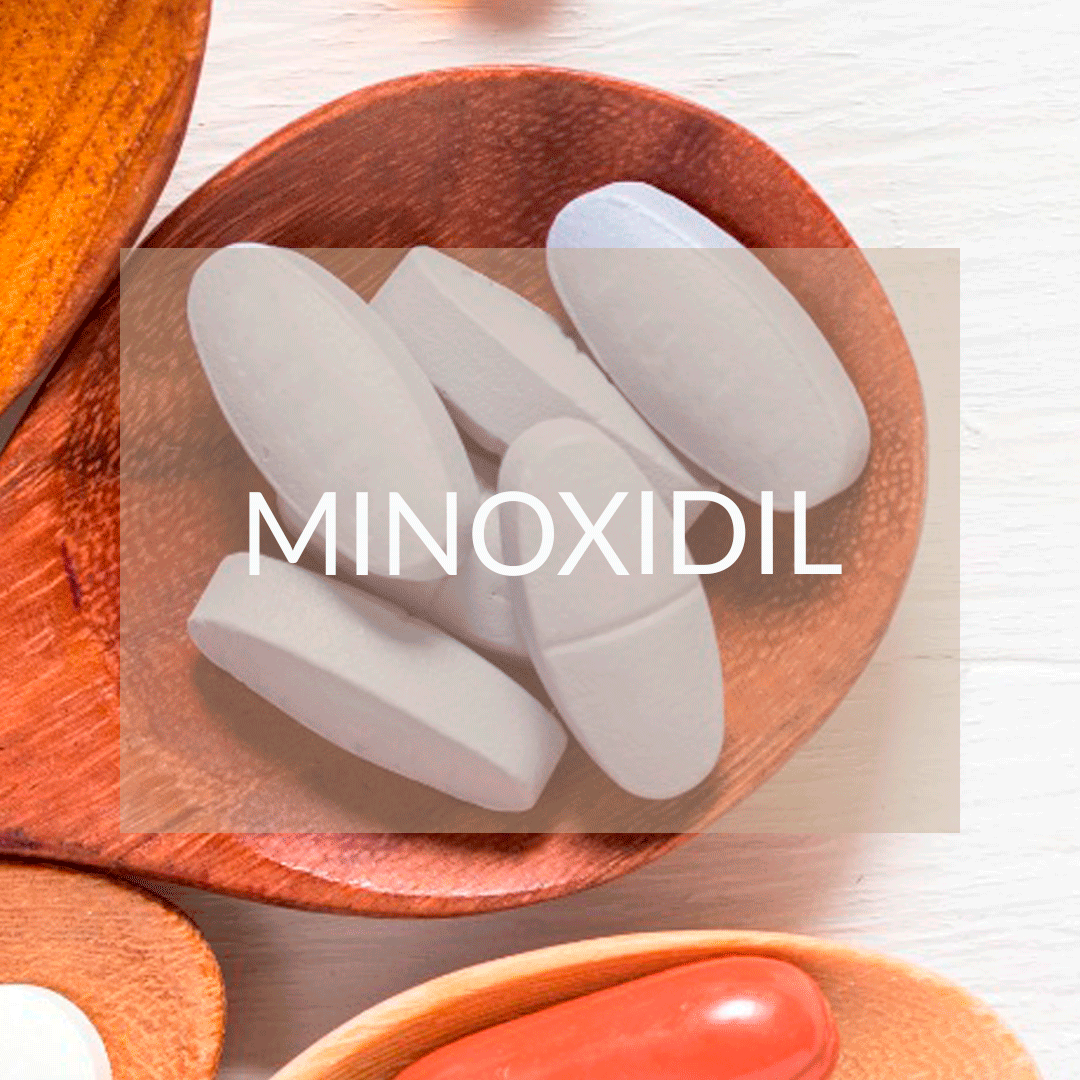Pharmacological treatment – FINASTERIDE
There are several medications that a trichologist can prescribe as an aid to hair treatment or hair transplantation. Finasteride is one of the pillars, which we will learn more about thanks to the information provided by the U.S. National Library of Medicine.
This is a medicine that can have two uses, benign prostatic hypertrophy (prostate enlargement) and hair loss. Alopecia is treated with a 5-alpha reductase inhibitor. This leads to blockage of a male hormone that leads to hair growth stopping. It is one of the drugs that is usually prescribed when androgenetic alopecia is diagnosed.
After the pertinent studies and tests carried out, Finasteride is an FDA-approved drug. It is used in both men and women at a dose of 1 mg/day.
In which conditions is Finasteride prescribed?
Finasteride is only taken under the prescription of the specialist doctor in the field. It should be this doctor who makes the guidelines to be followed by the patient. This step is very important, because he is the one who knows the exact dose that we should take and, if necessary, he will be able to adjust the doses so that they are 100% effective.
How is it taken?
Finasteride is taken orally in pill form. It is normally taken once a day, with or without food, and should be taken at more or less the same time of day. It is important to follow the doctor’s guideline, without increasing or decreasing the dose, as this will not lead to increased hair growth or slow down hair loss.
Hair loss treatment is gradual. Up to 3 months you may not see improvements in hair growth or in stopping hair loss. Keep in mind that the effects of Finasteride will only decrease hair loss while taking the drug.
Like Dutasteride, Finasteride is a medication that can also be prescribed and applied topically.
Do I need to take precautions with Finasteride?
As with all medicines, you should inform your doctor if you are allergic to Finasteride or any of its components, as well as if you experience allergic symptoms after taking them. Also, let your doctor know what prescription and nonprescription medications, vitamins, supplements, and herbal products you are taking. Also if you have liver disease or prostate cancer. Women who are not prescribed Finasteride, especially pregnant women, should not come into contact with the drug, as it can harm the fetus. If you come into contact with them, you should wash the area with soap and water and inform a doctor. You must also inform if you intend to have children. In this case, the medication should be reduced and stopped for a while to have satisfactory results in the pregnancy.
Does it have side effects?
Although they are very rare and almost unlikely, Finasteride can cause sexual side effects, such as the inability to have or maintain an erection, decreased sexual desire, ejaculation problems, testicular pain or depression. You may also develop other serious effects such as breast changes (enlargement, lumps, soreness or discharge from the nipples), rashes, itching, hives, swelling of the lips and face, or difficulty swallowing or breathing. As we have stated, these side effects are highly unlikely and will disappear as the patient’s dose is adjusted.
On the other hand, it is important to highlight the high safety index that both Finasteride and Dutasteride offer. They are drugs that were initially conceived against benign prostatic hyperplasia, but capillary thickening was seen as a side effect. Other effects, such as those of a sexual nature, are rare and unlikely.
How is it preserved?
Finasteride should be kept in its original container, tightly closed and out of the reach of children. It should be kept at room temperature and in a place away from excess heat and moisture.
Is there anything else I should know about Finasteride?
You should know that taking Finasteride must be regularly monitored by your specialist doctor. Therefore, you should not miss any appointment with the doctor. Before any other laboratory tests are carried out, you must inform your doctor and the laboratory personnel that you have taken Finasteride.
Who should prescribe Finasteride?
Finasteride must be prescribed by a Trichologist such as Doctor Espinosa Custodio, Medical Director of the Instituto Médico del Prado, who in his diagnostic consultation will decide the best treatment for you based on his experience.
FAQs
If a man takes finasteride or dutasteride for his alopecia, what effect does it have on his prostate?
At the doses normally used in alopecia it would not have any effect on the prostate. In any case, the effect would be positive as it would prevent the prostate from growing abnormally.
Can women take this medicine even though the package insert says it is for men?
They can take it, always under medical prescription. The use of a medicine outside the indication for which it was launched can be done, as long as there is scientific evidence of its effectiveness and safety. In the case of finasteride and dutasteride, there are multiple studies supporting their effectiveness and safety in male and female alopecia.
What precautions should a woman taking finasteride or dutasteride take?
The most important: You must avoid becoming pregnant while taking the drug and for a period of time after stopping it (1 month for finasteride and 6 months for dutasteride).
Having taken these drugs, however, does not have a negative impact on a future pregnancy of the patient.
Can I take finasteride or dutasteride if I am male and actively trying to have a baby?
This drug can be transmitted during sexual intercourse, so if you are looking to become a father, you should stop treatment a few months before. I will tell you how to proceed, as the “washout” months may vary depending on the dose you take and the medication (dutasteride or finasteride).
Do these drugs increase the risk of cancer?
These drugs do not increase the risk of any type of cancer. There are important studies proving this fact.
Is it necessary to carry out analytical controls or avoid any type of medication while taking these drugs?
As they are selective medications on the follicular root, they are very safe drugs and no analytical control is usually necessary, nor do they interact with other drugs. Follow the indications that I have given you in your particular case. Normally, I like to do a blood test before starting any pharmacological treatment.
Commercial compound or master formula?
The use of finasteride for androgenetic alopecia has a dose of 1 mg/day.
This application is currently an “off-label use”. This means that there is no currently marketed dutasteride drug for patients with alopecia. Avidart is usually prescribed but the indication that appears in the prospectus is for benign prostatic hyperplasia
In general, I usually resort to the magistral formulation (that is, they “make” the capsules in the pharmacy with the doses prescribed for each patient). To avoid errors in the magistral formula, it must be done in specialized pharmacies with experience in drug formulation.
What happens if I stop taking finasteride/dutasteride?
Like other treatments for alopecia, these medications are not curative and their positive effect will be maintained as long as patients maintain treatment over time. For this reason, it is essential that the treatment strategy be comfortable enough for good therapeutic adherence. That the treatment must be maintained continuously does not mean that it must be daily, in fact, many patients are adequately maintained with a therapy of 2-3 doses a week when the alopecia is stabilized.
Do I have to be taking pills the rest of my life or is there another alternative?
Pharmacological treatment is very important to stabilize alopecia, but as the patient gets older, the doses can be lower and can even be suspended in some periods.
There is the possibility that oral treatment may be substituted for topical. This treatment is also very effective if the patient is constant in its application.
Does finastopic works?
Topical solutions such as finastopic are an alternative to oral treatment that is just as effective, as long as the patient is consistent in its use and is applied as often as prescribed.
Bibliography
– The effect of finasteride on the risk of acute urinary retention and the need for surgical treatment among men with benign prostatic hyperplasia. Finasteride Long-Term Efficacy and Safety Study Group. N Engl J Med., 338 (1998), pp. 557-563 J.D. McConnell, R. Bruskewitz, P. Walsh, et al. http://dx.doi.org/10.1056/NEJM199802263380901 | Medline
– Efficacy and safety of finasteride therapy for benign prostatic hyperplasia: Results of a 2-year randomized controlled trial (the PROSPECT study). PROscar Safety Plus Efficacy Canadian Two year Study. CMAJ., 155 (1996), pp. 1251-1259J.C. Nickel, Y. Fradet, R.C. Boake, et al. Medline
– Incidence and severity of sexual adverse experiences in finasteride and placebo-treated men with benign prostatic hyperplasia. Urology., 61 (2003), pp. 579-584. H. Wessells, J. Roy, J. Bannow, et al. Medline.




